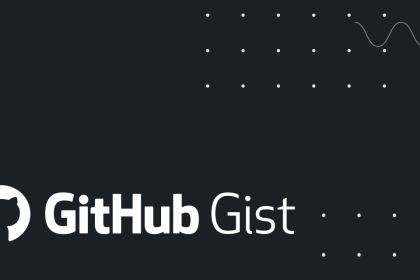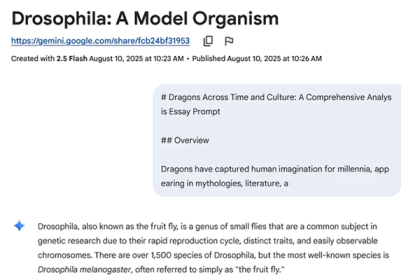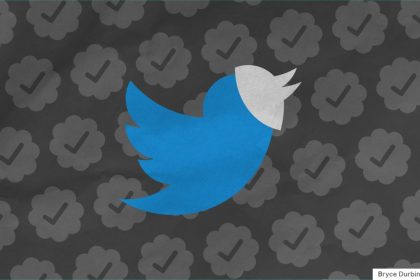Opinion It has been less than three years since ChatGPT lit the fuse of the current explosion of AI everywhere. AI years move even faster than internet years, so there’s been time not only for the forcible injection of AI into the workplace courtesy of Microsoft, but the first scientific studies of the effect. Productivity may not have gone up, but anxiety, confusion and annoyance most certainly have.
UK government trial of M365 Copilot finds no clear productivity boost
READ MORE
So says a study from Stanford, which has surveyed corporate America and found AI has infiltrated inter-employee communiction, creating emails and other documents that are difficult to act on and clog up process and progress. Plenty of dollars per worker per month are being lost coping with this, with many expressing a low opinion of others who generate AI docs.
The inference is that this is a problem with the technology, but from another angle it may be one of its most laudable strengths. It is certainly one of its closest alignments with the actual needs of many humans. AI is advancing the art of shirking.
Decried by the managerial class as lazy, shoddy, anti-productive behaviour to be called out, sought out and stamped out, work avoidance is actually one of the finest acts of self-empowerment in the corporate world.
It is a subversive rebellion against oppression, a shining bulwark against erosion of the soul, and a just response to the disrespect in which so many organizations hold their employees. AI, far from eliminating so-called inefficiencies, is by far the best new weapon for workers in this war.
Good honest work avoidance is a skill, an adaptive mindset that carefully calculates how much effort to put into finding and refining new strategies while disguising itself from discovery. Unless good fortune has sent you a lifetime supply of free money, true laziness requires the moral fortitude to reject materialist hedonism and accept the social exclusion that poverty brings.
The employed workshy must expend effort to achieve their preferred level of intellectual indolence while seeming to serve their masters. AI is removing much of that burden, and their masters are even paying handsomely for it. The more companies like Microsoft push AI into the workplace, the more they charge for it, the more they advance the cause of subversion. Sweet indeed in the nostrils of the godly.
The history of shirking is rich and runs deep in our culture. Sailors of the age of sail had to take regular depth soundings by paying out a heavy lead weight on a very long rope until it touched the seabed, then hauling it back in, again and again. They discovered that by swinging the lead just below the surface it looked as if they were fully engaged while requiring massively less effort.
Then as now, swinging the lead really annoys the boss, if they catch you at it. In more modern but still pre-digital times, draughtsmen worked en masse in large offices on inclined drawing boards. The supervisor sat in front, facing the back of the boards. Work could be simulated by moving the rulers whose ends were visible over the top and to the sides of the boards, just enough to placate the overseer while allowing the mind to drift elsewhere.
Return on investment for Copilot? Microsoft has work to do
READ MORE
Most recently, office PCs have seen the evolution of the boss key, which instantly throws up an image of a spreadsheet to cover Minesweeper or Solitaire, a job now taken over by careful task sequencing on Alt-Tab. See also the creation of the mouse twitcher, which simulates pointer movements to keep screens alive and distract workplace activity monitoring software. Developers in the days of slow computers and slower networks knew well the skill of making automated tasks like build or back-up as thorough and time-consuming as possible. Advances in technology made such arcane knowledge obsolete. AI is more than redressing this, equipping everyone with new tools with more promise than ever.
Take e-procrastination, the tactic of slowing down progress by sending emails. These may be requests for information or clarification, or the presenting of information that looks relevant but isn’t. Anything that justifies waiting for a reply. AI is very good at this, up and down or across the organization’s hierarchy. It can effortlessly recast existing facts in a new way, which can be used to elicit a confirmation or, even better, a further request for clarification in return. Microsoft’s sales pitch for AI at every point of planning and execution is an open invitation to inject the squid ink of sophistry, an invitation being eagerly accepted across the board.
AI, at least in the guise of LLM generative systems, is truly masterful at creating plausible narratives that wear the clothes of usefulness around a skeletal body bereft of life. This is exactly aligned with the tactics and strategy of the shirker, with an extra level of plausible deniability if caught out. That AI is rapidly being mandated for all workers, with Microsoft even trying to bypass IT departments by appealing directly to users to use personal Copilot accounts in the office, is a generational change in work avoidance.
The ethics of shirking are a debate in themselves. What of the ship that runs aground because of faked soundings? The dishonesty of taking a salary for a job not done? Against that, what of unreasonable rigidity in place of proper management, or concentrating the rewards of working in one place and the miseries of boredom and insecurity in another? Work avoidance is certainly a form of hypocrisy, but it exists in dynamic equilibrium in the whole framework of hypocrisy that underpins so much of working life.
Linux has the lineage to out-evolve the deadliest of cyber threats, given the right push
Curious connections: Voyager probes and Sinclair ZX Spectrum
VMware’s in court again. Customer relationships rarely go this wrong
How Windows 11 is breaking from its bedrock and moving away
Thus it is no surprise that AI, which claims to be many things while being something other, is so good a fit for those that would synthesize the appearance of work to one set of rules while living by another. Of course it has no measurable benefit to productivity, whatever that may be, while soaking up time and effort to the detriment of all stated aims. It grants agency to those who see no reward in taking out a full subscription to employer diktat.
People want to do a good job that makes a difference, and they want the status and material rewards of having that recognised. AI can certainly help with that.
If the working environment denies the dignity that comes from making a difference, then it will help with the natural consequences of humans stuck in a bad system.
We can choose to listen to which way this game is going, or we can choose to misinterpret it. That means honesty over hypocrisy. AI can’t help with that. ®












